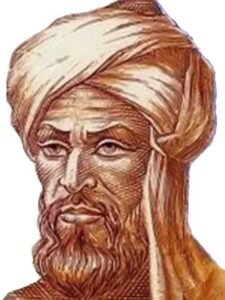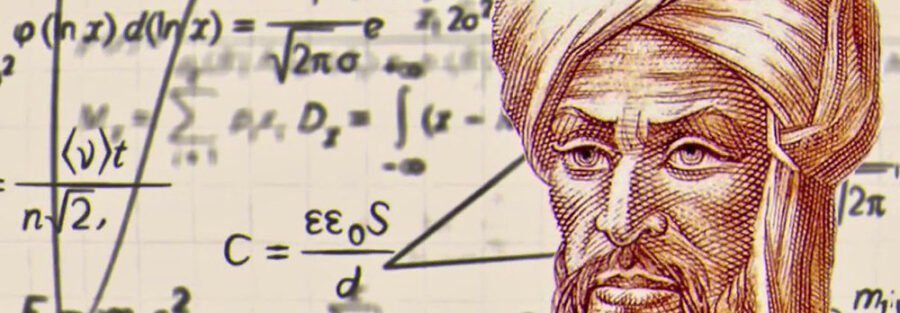
Al-Khwarizmi: The Father of Algebra and Modern Numerals
Al-Khwarizmi (c. 780–850 CE) was a Persian mathematician, astronomer, and scholar whose contributions to mathematics and numerical systems had a profound and lasting impact on the world. Often called the “Father of Algebra,” his work introduced fundamental concepts that shaped modern mathematics. His role in developing the Hindu-Arabic numeral system, which replaced cumbersome Roman numerals, revolutionized calculations and record-keeping in both the Islamic and Western worlds.
Early Life and Education
Born in the region of Khwarazm (present-day Uzbekistan), Al-Khwarizmi was active in the House of Wisdom in Baghdad, a major intellectual center of the Islamic Golden Age. There, he studied, translated, and expanded upon Greek, Indian, and Persian mathematical works, blending knowledge from various cultures to advance mathematical sciences.
Contributions to Mathematics and Algebra
Al-Khwarizmi’s most significant mathematical contribution was his work Kitab al-Mukhtasar fi Hisab al-Jabr wal-Muqabala (The Compendious Book on Calculation by Completion and Balancing), which systematically introduced algebra as an independent discipline. His key contributions include:
- Establishing Algebra as a Field: He formalized algebraic methods for solving linear and quadratic equations, introducing systematic techniques that are still used today.
- Developing Algorithmic Concepts: His name gave rise to the term “algorithm,” reflecting his structured problem-solving approach.
- Use of Zero and Place Value Notation: He helped refine the Hindu-Arabic numeral system, which included the concept of zero and positional notation, making calculations more efficient and accessible.

Advances in Astronomy and Geography
Beyond mathematics, Al-Khwarizmi made significant contributions to astronomy and geography. His Zij al-Sindhind was a set of astronomical tables that improved the accuracy of celestial measurements. He also worked on world maps and geographic calculations that influenced later cartographers and explorers.
Legacy and Influence
Al-Khwarizmi’s works were translated into Latin in the 12th century, profoundly influencing European mathematics. His algebraic methods provided the foundation for modern algebra, while his numeral system became the global standard for arithmetic.
Today, his contributions continue to shape mathematics, computer science, and engineering. The concepts he pioneered remain fundamental in education and daily calculations, ensuring his legacy as one of history’s most influential mathematicians.
Conclusion
Al-Khwarizmi’s groundbreaking work in algebra and numerical systems represents a cornerstone of mathematical progress. His innovative approach to problem-solving and logical structuring of equations solidify his place as a visionary scholar whose contributions continue to impact modern science and technology.



